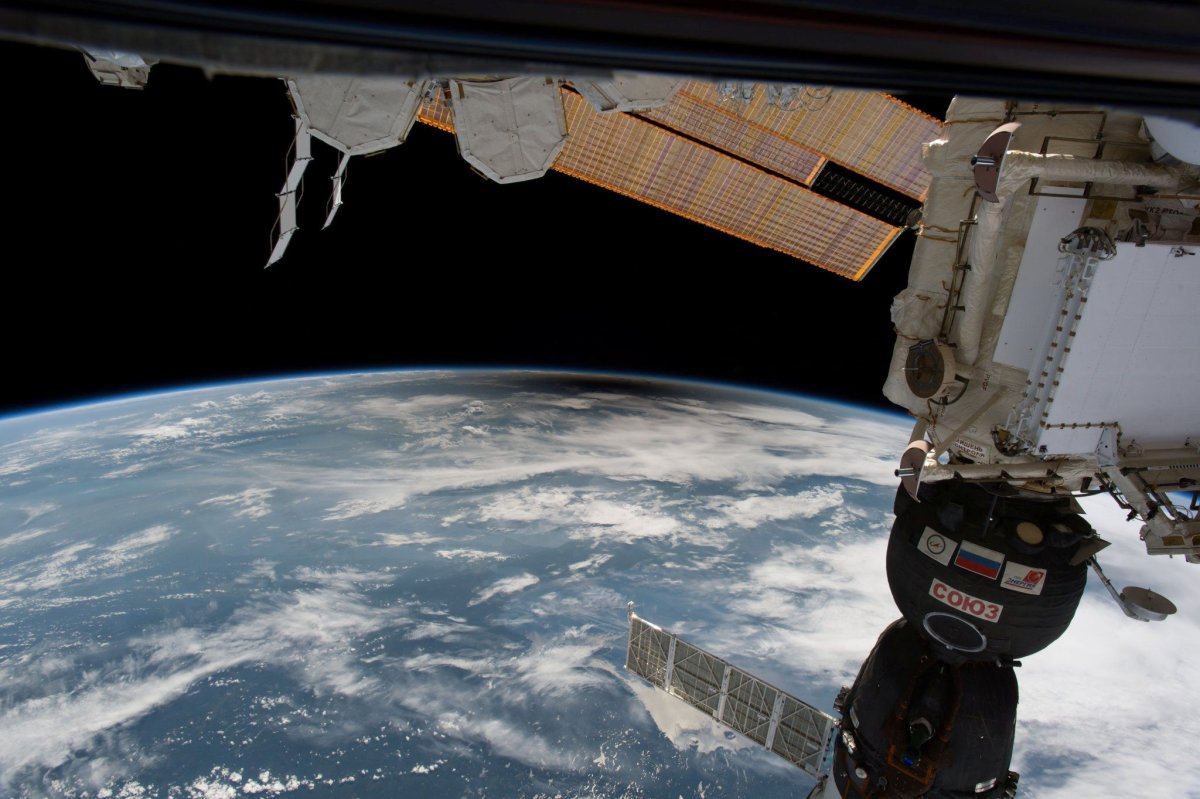In late August, air started bleeding from a Soyuz spacecraft docked at the International Space Station (ISS). Astronauts isolated and plugged the small leak quickly, but rumors surrounding its cause have been harder to contain.
Micro-meteorites, manufacturing defects and even astronaut sabotage have all been touted as potential, and controversial, reasons for the leak. As investigations continue, NASA and Russian space agency Roscosmos are keeping tight-lipped.
In a joint statement Thursday, space agency bosses Jim Bridenstine and Dimitry Rogozin said they had agreed to "[defer] any preliminary conclusions and providing any explanations" until investigations led by Roscosmos are complete. The agencies stated they would work together to help solve the mystery.
The European Space Agency also intends to aid the investigation. "All other International Space Station partners, including ESA, are in full support of the ongoing efforts by the Roscosmos commission," said an agency statement sent to Newsweek.
Rogozin previously said the leak may have been caused by a micro-meteorite impact. But he later suggested the hole was caused by drilling, Ars Technica reported. An engineer, it seemed, had noticed a hole in the Soyuz and patched it with glue. "We can see the mark where the drill bit slid along the surface of the hull," Rogozin told RIA Novosti, a Russian news agency. "We want to find out the full name of who is at fault—and we will."
As Space.com points out, Rogozin also said investigators would find out whether the hole was drilled "on Earth or in space." One theory suggests a crew member started the leak in an attempt to get a sick astronaut evacuated, Ars Technica reported Tuesday.
Rumors that an astronaut might be to blame drew ire from Drew Feustel, commander of Expedition 56, who is on board the ISS. "I can unequivocally say that the crew had nothing do with this," he told ABC News. "I think it's absolutely a shame and somewhat embarrassing that anybody is wasting any time talking about something that the crew was involved in."

Although the leak was tiny this time around, "the implications are enormous to the whole space program," he added.
In other space news, astronomers recently discovered dozens of mysterious space signals called fast radio bursts. Nobody knows exactly what causes this kind of bleep, but some scientists think neutron stars near black holes or nebulas could be to blame.
NASA did not immediately respond to Newsweek's request for comment.
Uncommon Knowledge
Newsweek is committed to challenging conventional wisdom and finding connections in the search for common ground.
Newsweek is committed to challenging conventional wisdom and finding connections in the search for common ground.
About the writer
Katherine Hignett is a reporter based in London. She currently covers current affairs, health and science. Prior to joining Newsweek ... Read more
To read how Newsweek uses AI as a newsroom tool, Click here.








